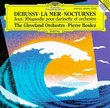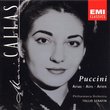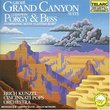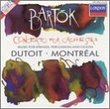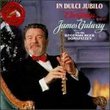| All Artists: Ludwig van Beethoven, Zubin Mehta, Vienna Philharmonic Orchestra, Vladimir Ashkenazy Title: Beethoven: Piano Concerto No. 4 in G Major, Piano Concerto No. 5 in E Flat Major 'Emperor' Members Wishing: 0 Total Copies: 0 Label: Decca / London Release Date: 6/14/1991 Genre: Classical Styles: Forms & Genres, Concertos, Historical Periods, Classical (c.1770-1830), Instruments, Keyboard Number of Discs: 1 SwapaCD Credits: 1 UPC: 028943070423 |
Search - Ludwig van Beethoven, Zubin Mehta, Vienna Philharmonic Orchestra :: Beethoven: Piano Concerto No. 4 in G Major, Piano Concerto No. 5 in E Flat Major 'Emperor'
CD DetailsSimilarly Requested CDs
|
CD ReviewsStill in Print (but for how long?) . . . Johnny Bard | Orlando, FL | 02/13/2002 (5 out of 5 stars) "I found this disc used, and it's been one of my favorites ever since. Ashkenazy's interpretation ranks right up there with Martha Argerich/Sinopoli (Beethoven's Piano Concertos 1 & 2 on DG, now out-of-print) and Perahia/Haitnik (Beethoven's Piano Concerto's 3 & 4 on London, also out-of-print). Mehta as usual delivers, and the Vienna Philharmonic Orchestra never disappoints. Recorded in the mid-1980's, this DDD recording sounds fantastic. Ashkenazy's injects a sense of energy and passion into both concertos that's rarely matched. If/when you come across this disc, I strongly encourage you to purchase it before it, too, goes out-of-print (like so many great recordings before it)." Breathtaking! RURW (roywahl@bellatlantic.net) | Cliffside Park, NJ | 11/20/1999 (5 out of 5 stars) "Take Ashkenazy's sparkling and fresh piano style, Mehta's and the Vienna's youthful and driving, but yet accentuated orchestral push, applied to two of the most great, majestic and eternal concerto's in all of music history... And this in DDD for a bargain price! No more said." Sparkling, elegant performances Alejandra Vernon | Long Beach, California | 01/30/2005 (5 out of 5 stars) "These are beautiful renditions of Beethoven's 4th and 5th concertos, with Ashkenazy's flawless technique and superb interpretations, along with the brilliance of Zubin Mehta and the Vienna Philharmonic, and excellent sound reproduction. My only current comparison is with the 1963 Arrau version, with Haitink conducting the Amsterdam Concertgebouw, which because of its age, has a muddier sound, but a performance of such power that of the two, I would take the Arrau as a "desert isle" disc; nevertheless, this is a marvelous alternate...graceful, a little slower in overall tempi, and a great choice for these two fabulous concertos.
A pianist of my acquaintance asserts that listening to the "Emperor" 5th concerto daily will make you smarter by "awakening brain cells", and it's worth a try. At the very least, it has given me an appreciation of the concerto I never had before, and Beethoven's music in general. The complexity and beauty of it is revealed bit by bit with every hearing, and becomes an adventurous exploration into the extraordinary genius of this giant among composers. Recorded in Vienna in 1983, the insert has liner notes on the music, and total playing time is 76'15. " |

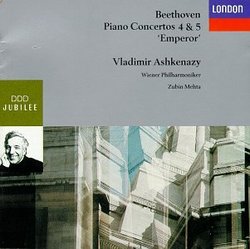
 Track Listings (6) - Disc #1
Track Listings (6) - Disc #1
